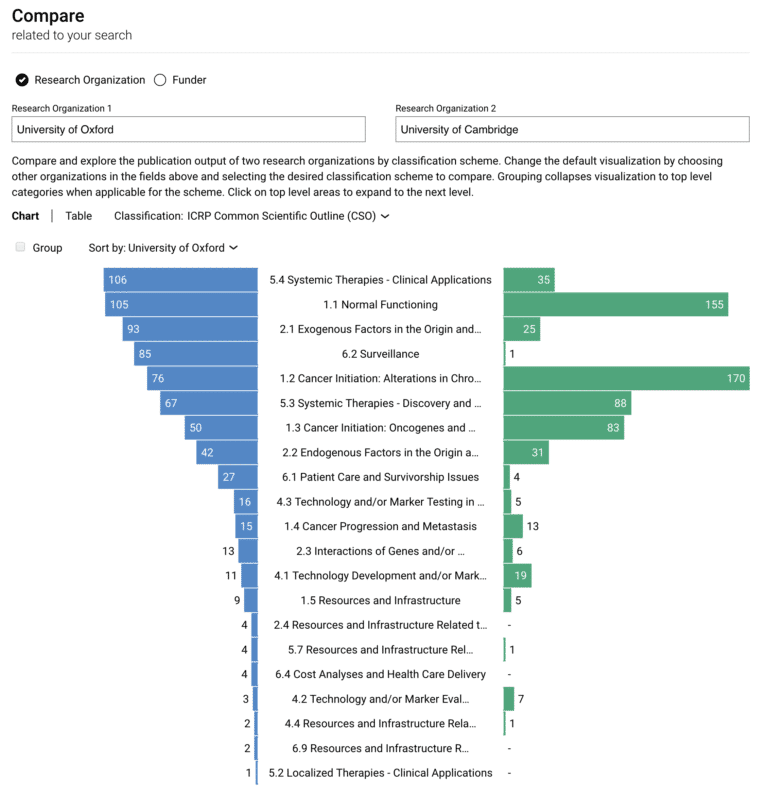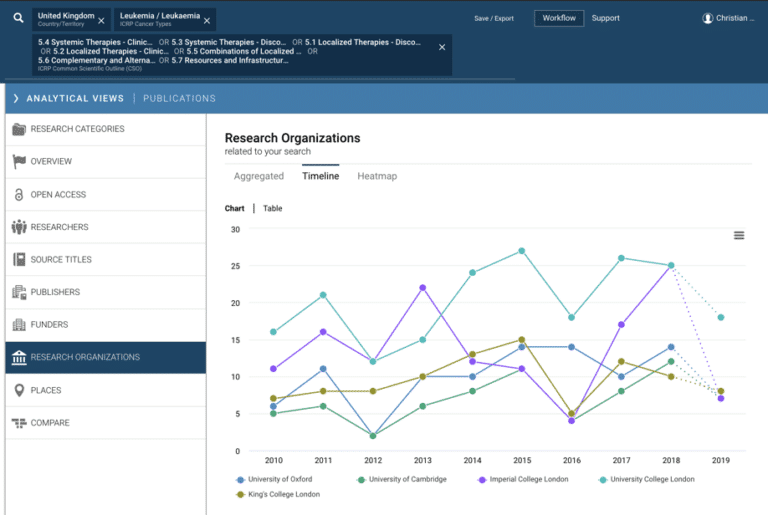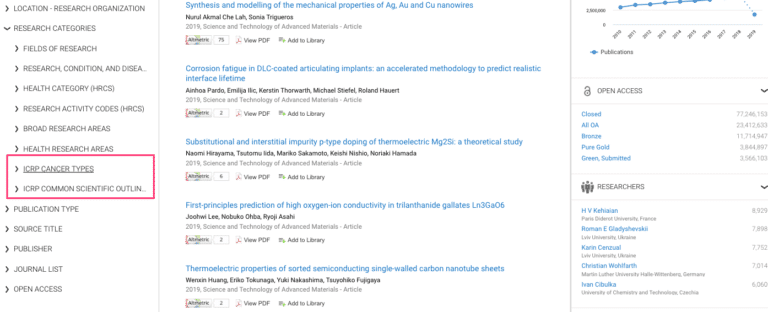Finding a common language
Dimensions integrates the CSO classification from the International Cancer Research Partnership (ICRP)to track and understand cancer-related activity across publications, grants and more. The ICRP itself maintains the only worldwide public source of current and past cancer research grants (more than $50 billion has been awarded since 2000 alone).
For many years, the stumbling block for funders like ICRP, researchers and institutions was that there was no clear way to categorize the cancer-related grants awarded or the findings they funded. This made conducting any kind of meaningful data analysis a challenge.
In response, the ICRP launched the CSO – Common Scientific Outline – coding system; it contains 34 codes organized into six broad areas of scientific interest in cancer research:
- Biology
- Etiology
- Prevention
- Early Detection, Diagnosis & Prognosis
- Treatment
- Cancer Control, Survivorship & Outcomes
The CSO is complemented by a series of codes describing the cancer type. The codes for both can be applied to many forms of data – in the case of publications, for example, they are determined by looking at the text the researcher has used to describe their research, e.g. the award title, lay and/or scientific abstract and keywords (where available).
The big advantage of the ICRP CSO system is that it provides a common language for comparing and contrasting the research portfolios of agencies, whether they are public, philanthropic, or government-run.
CSO and Dimensions
We use machine learning technology to automate classification; training and refining the algorithm with pre-coded documents and the input of ICRP subject matter experts.
Unlike other databases, Dimensions doesn’t use a journal classification approach, which has allowed us to include non-journal related records, such as grants.
As a result, we’ve now taken the next logical step and applied the ICRP CSO coding to all cancer research-related records among the 100 million publications, 2.4 million grants, clinical trials, policy documents, and patents that Dimensions is home to.
Deeper exploration of cancer research
Users of Dimensions Analytics are now able to explore and understand cancer research-related funding and publications in a much deeper way. For example, they can compare the activities of funders, universities, countries, and researchers (see figures 1 and 2).


How to filter using the ICRP categories
Whether searching publications, grants, patents, clinical trials, or policy documents, Dimensions Analytics users will find a filter called ‘Research categories’ in the left hand column. Clicking on it opens out a list of six options (see figure 3). These include the two new ICRP-related filters:
- ICRP Cancer Types: Lists more than 60 cancer types determined by a coding system linked to the World Health Organization’s International Classification of Diseases.
- ICRP Common Scientific Outline (CSO): The 34 CSO codes organized into six broad categories of scientific interest in cancer research.
Users can filter and browse on these ICRP categories and their sub-categories, or use them to refine search results.

The ICRP classifications are not the only field-specific categories integrated into Dimensions Analytics – we also include the NIH’s RCDC system and the HRCS system from the UK.
Talk to us and learn how we can help your research
Are you interested in finding out how Dimensions can benefit your organisation? Please contact us and we’ll be in touch soon.
